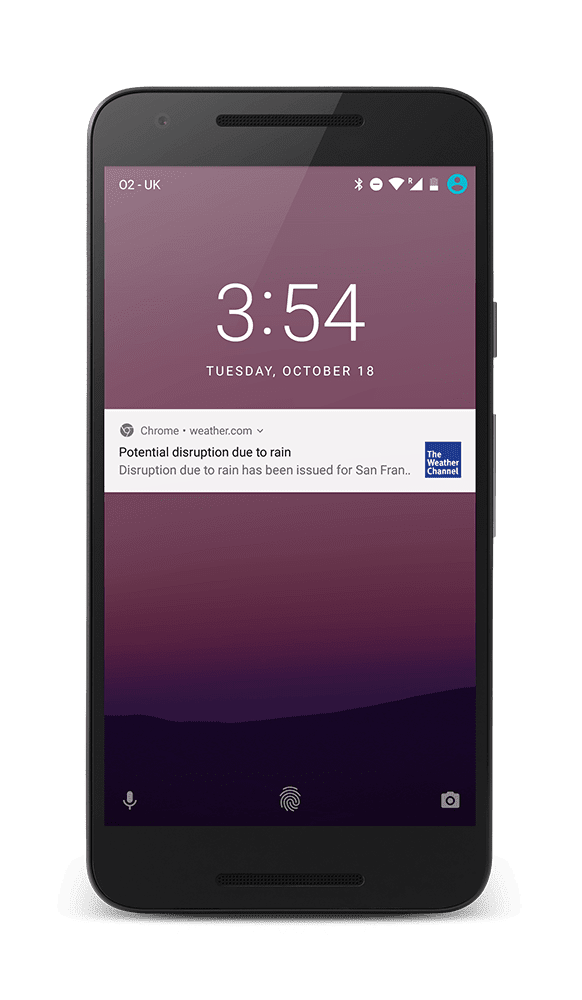
Summary
The Weather Channel sees mobile web success with Progressive Web App, launching in 62 languages to 178 countries.
Results
- Progressive web app now available in 62 languages and 178 countries
- 80% improvement in load time
- Based on this successful global test, the team will expand the PWA to its U.S. site in 2017
About The Weather Channel
The Weather Channel has been forecasting since the 1980s and now serves people all around the world across many platforms. Its weather.com website sees traffic from every country and is a top-20 site in the United States. And its parent, The Weather Company, an IBM Business, serves an average of 40 billion forecast requests every day, helping people plan their daily lives and make better decisions based on weather.
Challenge
The Weather Channel has always leveraged the latest technology innovations to help do its job in being the number one destination for weather reporting. The team’s goal is to supply timely, accurate information when it matters most. Weather is volatile, and delivering important data when people need it isn’t always easy, so the team was interested in improving its mobile web experience.
On mobile, The Weather Channel has pushed vital information to their native-app users for some time. But this represents only half of their mobile traffic, with the other fifty percent accessing their site via the mobile web. The mobile web is also an extremely important discovery portal in markets where users don’t have the latest smartphones, reliable connectivity, or there’s significant cost for downloading an app.
Weather looked to progressive web app technologies for a solution, approaching it in steps. Being a site that focuses on immediacy, especially related to real- time weather notifications in severe situations, the first area the team tackled was to create browser push notifications when severe weather hits. They also wanted to re-engage mobile users who hadn’t downloaded their app but were likely to be affected by severe weather.
Solution
To scale quickly, The Weather Channel implemented push notifications for mobile web users on Android and desktop users on Chrome. The experience looks and feels like a native app, and works even if the browser isn't running. The team used a technology called service workers to provide offline processing and deliver messages quickly. Within three months, The Weather Channel had seen almost 1 million users opt in to receive web push notifications, with 52 percent coming from mobile.
After success with testing push, they continued along the full journey to build a Progressive Web App (PWA). Given the complexity of its U.S. site, Weather turned to its international sites first and have now rolled out progressive web apps in 178 countries, serving 62 languages. After upgrading their site to a PWA, they saw a 80% improvement in load time.
The Weather Channel has a global audience, so being able to provide a PWA experience with the most reliable weather information to people across the world in their local language has been key in growing that user base. On a technical level they made this efficient by enabling support for over 60 languages using one code base.
“A web experience, especially weather forecasts and notifications, must be timely and relevant to be useful, and we deliver the most relevant information when needed most,” says Wendy Frazier, vice president of web development at The Weather Company, which runs weather.com. “We provide a helpful service with accurate science and crucial information. And we use the most innovative technology to help people know what kind of weather is heading their way, no matter what platform they’re on.”
“For the first time, we can reach people anywhere, which extends our mission to keep people safe and informed,” she adds. “It’s amazing to be able to do that globally, but with local presence and in language to make it relevant. We have the most accurate forecasts and the best data, and progressive technologies give us the ability to provide weather info to users in their preferred experience.”
